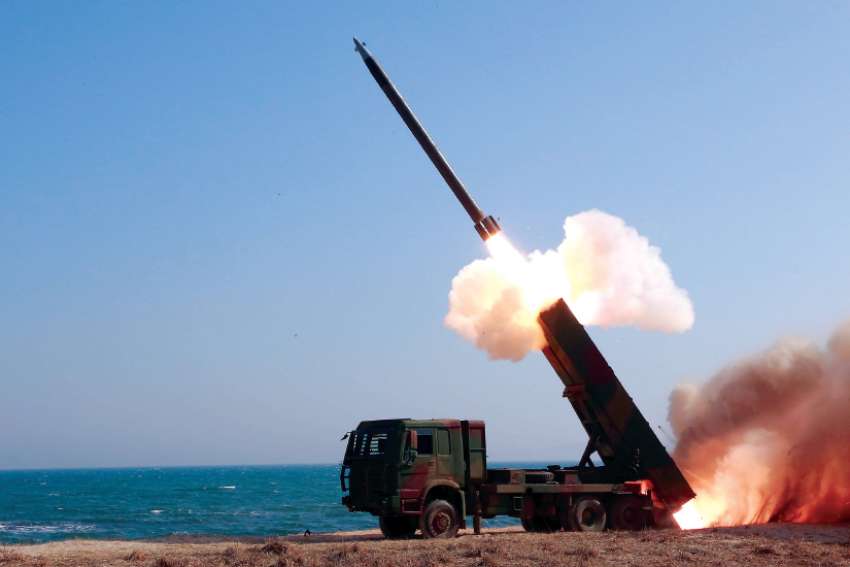“Nuclear weapons promote the culture of ultimate violence, claiming implicitly that the pursuit of security by one state can rightfully place the right to existence of all future generations at risk,” said the statement, released Nov. 28.
Titled “Responding to the Unique Challenge of Nuclear Weapons,” the statement from the Chicago-based interfaith organization opposes the doctrine of mutual assured destruction that has justified possession and development of new weapons over the past three generations.
“This statement reinforces and is consistent with Pope Francis’s statement on nuclear weapons,” Global Security Institute president Jonathan Granoff told The Catholic Register. “The Parliament is lining up with Pope Francis.”
The statement comes after the Parliament initially declined to add an anti-proliferation stance to its portfolio of basic moral positions shared by all global faiths. After former prime minister Kim Campbell, General Romeo Dallaire and former senator Douglas Roche hosted a session on moral and political threats to humanity during the gathering in Toronto, Granoff drove the process of drafting a final statement on nuclear weapons.
“It should be read by every person concerned with the future of humanity. It should be acted upon by every person who respects the gift of creation,” said Granoff. “This is a call to bring the power and passion of the human soul to the greatest threat that humanity has ever faced.”
The statement contains a specific endorsement of the Nuclear Weapons Ban Treaty signed at the United Nations last year. That treaty, which NATO members and the nine nuclear weapons states refused to vote on, is not yet in force. Passed Sept. 20, 2017 by a vote of 122 to one, with one abstention, it has been signed by 69 nations and ratified by 19, including the Holy See. It will come into force when ratified by 50 nations.
The Parliament’s stand on nukes is particularly relevant for Canada, said Granoff.
“Canada is a pivotal country, in that it could have developed nuclear weapons but it decided not to,” he said. “Canada, however, is a member of NATO. And NATO has a first-strike policy — that is it would use nuclear weapons first. This is a complete contradiction.”
Roche, former Canadian Ambassador for Disarmament under prime minister Brian Mulroney, has been working with the Canadian Conference of Catholic Bishops on an upcoming statement on nuclear weapons. He expects the CCCB statement will also take a concrete position in favour of the Nuclear Weapons Ban Treaty and in support of Pope Francis.
“The Pope has personally involved his high office in teaching on the two paramount issues of our time that absolutely have to be resolved if we’re going to get out of the 21st century in one piece — nuclear weapons and climate change,” Roche said.
“And both of them are intensely moral issues.”
A moral position against nuclear weapons must have political consequences, he said.
“We’ve got an election coming, for heaven’s sake. This is the time to influence the political process,” said Roche. “We need to wake up the churches to the reality of the dangers that imperil God’s creation. What more can I say?”
People must resist the idea that the moral high ground on nuclear weapons represents impractical, starry-eyed idealism, said Granoff.
“Far be it from having a policy that is morally coherent but impractical. But even worse is to claim that you can have a policy that is practical but morally incoherent,” he said.
The Parliament’s statement against nuclear weapons “deepens the moral call for a process leading to the elimination of nuclear weapons,” said Roche. “Such a statement is exceptionally important at this moment of chaos in international affairs.”
Support The Catholic Register
Unlike many other news websites, The Catholic Register has never charged readers for access to the news and information on our site. We want to keep our award-winning journalism as widely available as possible. But we need your help.
For more than 125 years, The Register has been a trusted source of faith based journalism. By making even a small donation you help ensure our future as an important voice in the Catholic Church. If you support the mission of Catholic journalism, please donate today. Thank you.


